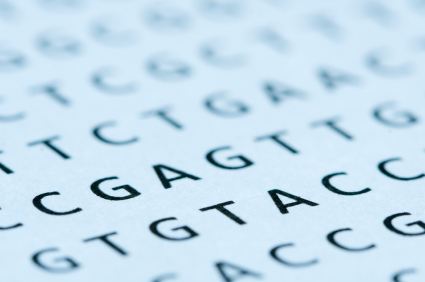
When tumors are surgically removed from cancer patients, the tumor samples are often stored as formalin-fixed and paraffin-embedded (FFPE) tissue blocks. In many cases, tumor samples need to be analyzed several years after diagnosis in order to develop target treatments. But what happens to the DNA after years of storage in FFPE blocks? How well is the DNA preserved?
Scientists in France tried to answer this question in a recent study published in Virchows Arch. The authors extracted DNA from 46 FFPE tumor samples of lung, colon and the urothelial tract, all stored between 4–6 years at room temperature. They then compared the quantity and quality of the DNA to DNA that had been extracted before storage. Using common fluorimetry and qPCR methods, the authors found that the total amount of DNA extracted decreased by half. In addition, the percentage of amplifiable DNA decreased from 56% to only 15% after prolonged storage.
The authors further confirmed these results using the ProNex® DNA QC Assay. This new assay, developed by Promega, is used to evaluate the quantity and quality of genomic DNA extracted from FFPE samples or other potentially degraded DNA sources. In other words, it allows researchers to determine the amount of amplifiable DNA in a sample. The multiplex assay detects 75bp, 150bp and 300bp human genomic DNA sequences, and it includes an internal positive control to detect false-negative results that may occur in the presence of PCR inhibitors.
The ProNex® DNA QC Assay confirmed that the DNA in FFPE samples was significantly degraded after prolonged storage. The percentage of 150bp amplifiable DNA (relative to 75bp DNA) decreased from 58% in initially extracted samples to 16% in stored samples. The difference in 300bp amplicons was even more significant, decreasing from 31% to 2% after storage.
There were also more mutations in the DNA after prolonged storage. Using next generation sequencing, the authors found a 3.3-fold decrease in library yield and a 4.5-fold increase in single-nucleotide variant (SNV) rate. The increased SNV rate may result from cytosine deamination due to formalin fixation, which transforms C to T and G to A.
This study brings awareness to the extent of DNA degradation in FFPE samples after years of storage at room temperature. The authors suggest that storing samples at 4°C or in a vacuum pack may help to reduce degradation.
Reference: Guyard A., et al. (2017) DNA degrades during storage in formalin-fixed and paraffin-embedded tissue blocks. Virchows Arch. (epub ahead of print)
Latest posts by Johanna Lee (see all)
- How Avian Influenza Crosses Species - February 22, 2024
- Macrophages: The Unsung Heroes of Immune Response and Biologic Drug Development - December 28, 2023
- Treating Solid Tumors: Combining CAR-T Cell Therapy with Probiotics - October 31, 2023
